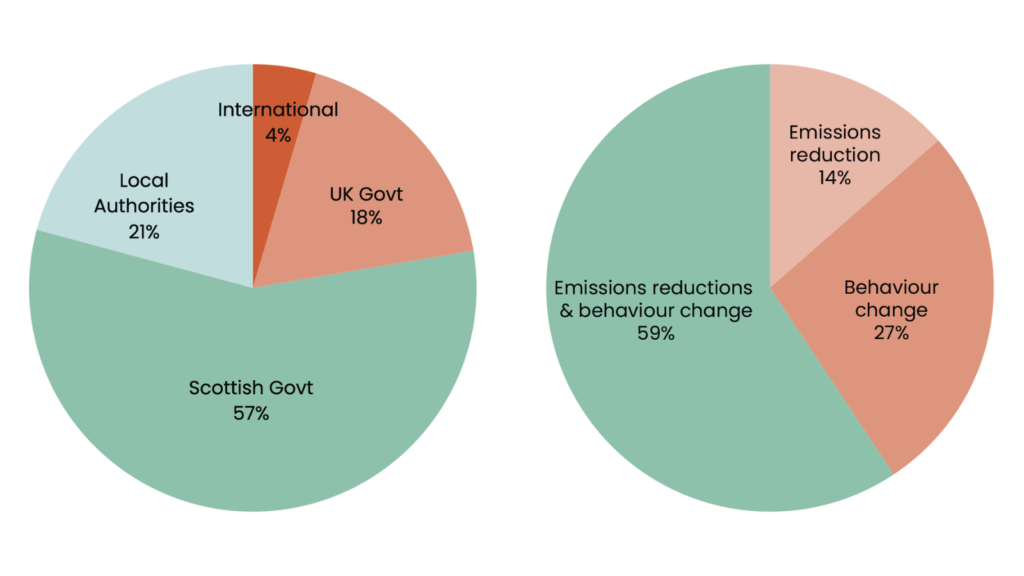Summary
The world is in a climate crisis. As the UN Secretary General, António Guterres, recently said: ‘humanity is on thin ice — and that ice is melting fast.’ He called on the world’s nations to ‘massively fast-track climate efforts by every country and every sector and on every timeframe.’
Scotland has been a global climate leader. But, while championing international action is welcome, it still needs to do much more to reduce emissions at home, to prepare for the climate that is coming, and to help the most vulnerable countries already suffering deep impacts.
We are off track to meet our climate targets and this document is a collection of proposals that could help us get back on track. It is a wealth of content for those revising Scotland climate plans. It is a wide-ranging set of plans for political party manifesto writers. And it is a mine of information for politicians trying to make the world a better place.
From farming to transport and from energy to our seas, the policies in this document cover vast swathes of the economy. They also show how to change the economy itself and they demand that we make our fair contribution to the rest of the world’s efforts to cope with a changing climate. The policies in this document concentrate on reducing emissions but also touch on adaptation. And they outline how climate action can be paid for fairly by making polluters pay.
Total Policies: 119

The breakdown of policies in this document (some policies are of course targeted at more than one level of government)
Most of the policies are for the Scottish Government, but some are for local authorities, some for the UK Government and some for the international community. Confronting the climate crisis will indeed require doing Guterres’ “everything, everywhere, all at once” and even where the Scottish Government is not the prime mover of an issue, it can influence, incentivise and persuade, a role that it must perform from a position of domestic credibility.
Some policies would directly bring about emissions reductions, some would help to enable behaviour change towards those that are pro-climate by making these choices more affordable and accessible, and some would do both.
Some of the policies in this document could be put in place tomorrow, some quite quickly and some are ideas that need working through with experts and stakeholders.
For some ideas, there is an obvious upcoming opportunity for change – for instance, re-orienting agricultural subsidies through the Agriculture Bill or introducing further producer responsibility schemes through the Circular Economy Bill.
Certain measures would obviously fit well together – for instance, Workplace Parking Levies could help fund free public transport.
Of course, there has already been good progress in a number of areas and SCCS would want to see positive policies maintained and used as a springboard for action at a truly transformative scale. Examples include climate targets, the climate plan process, the ban on fracking, the transformation in how electricity is generated, the 20% car-kms reduction target.
SCCS members, together as the coalition and separately, will be advocating for these policies to political parties, through Scottish Government processes and to the wider public. Those who are part of international networks will also be promoting them there as well.

